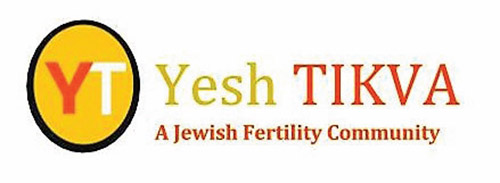

Many health-related organizations realize the importance of peer-to-peer support and have established specific divisions to provide this service. In the world of infertility, however, suffering and pain still happen in a lonely and depressed environment. Gila Block experienced this loneliness firsthand. As Gila and her husband were trying to get pregnant, they became lost in a world of needles, science and facts. Their rabbi was not sure how to comfort them on an emotional level.
Elie Salomon and her husband had experienced multiple miscarriages, and failed attempts to conceive, even with assisted reproductive technology. They traveled to Israel to receive brachot from rabbis, and spoke to specialists in the fertility field and throughout. However, they still felt the need for support from other couples in similar situations.
Living at the time in a community of young couples, the Blocks knew the statistic that one in eight couples will experience infertility. The Blocks realized that there must be others feeling similarly, but did not know how to reach out to them. Through a series of hashgacha pratit events, they were introduced to others and to professionals who helped them form a network of support. The chizuk the Blocks gained from having this new forum made them understand that “if we needed support, it’s important to realize that others needed it, too.” With this thought in mind, the Blocks, together with Elie Salomon, joined with Yoetzet Halacha Dalia Schulman, Randi Goldfarb, a licensed social worker, and Miriam Pineles, an acupuncturist helping women along their journeys, who realized that struggling couples would benefit from this connection. Together, they worked to establish a forum for couples going through infertility to connect to each other.
What differentiates Yesh Tikva from other organizations is that they provide a type of support previously absent from the world of infertility. They do not provide financial assistance or medical advice. In addition, while Yesh Tikva has a halachic resource, they do not pasken halacha, but instead they rely upon their rabbinic authority to guide the couples in the questions to ask. Their ultimate focus is filling the emptiness that comes from dealing with the intensity of the infertility journey without a circle of support. “Our goal,” explained Block, “is not only to fulfill personal needs, but to help others. Infertility impacts a huge part of the population. It is not only those with a new diagnosis, but also families still healing from the emotional impact of what they have gone through.”
In addition to the peer-to-peer support that Yesh Tikva provides, they also educate fertility consumers to be prepared for their doctor visits so that they can be their own best advocate. The fertility language of acronyms and medical jargon is a foreign language for most, but with the help of Yesh Tikva’s “Acronym list” and “Insider’s Guide” one can approach their initial consult armed with an education, thereby alleviating their fears and able to absorb and question what lay ahead. In this emotionally overwhelming experience, Block and her team want the couple to know what will happen, what to expect and what halachic questions to ask and how to ask them, if that is the way they want to go about the process. “The patient needs to see themselves as an equal participant, something they cannot do if everything is unfamiliar,” emphasized Block. “Going in educated still does not guarantee success, but it takes away some of the unknown and becomes emotionally empowering.”
Yesh Tikva aims to provide an education, not just to the couple experiencing infertility, but to the community as well. There must be education and awareness within the social environment as well and the communities themselves must be aware that this occurs. (See the website for some tips from Yesh Tikva.)
Virtually every Shabbat and every family gathering can be an additional heartbreaking reminder to someone trying to conceive that they have yet to be successful. Holidays are an especially painful time for couples. So many of these events revolve around children and their enjoyment of the Chag. Pesach in particular is an extremely family-oriented holiday, where the answer to every question is “so that the children will ask.” This only exacerbates the frustration of a childless couple.
On April 1, Yesh Tikva will hold their second annual Infertility Awareness Shabbat. The Infertility Awareness Shabbat is Yesh Tikva’s initiative to raise awareness and sensitivity regarding infertility and to unite as Jews over a cause that affects one in eight men and women throughout the Jewish community. “On Shabbat morning, April 1, we are asking synagogues to partner with Yesh Tikva and share a message or dvar Torah to increase sensitivity toward all who have not yet been blessed with children or struggle to expand their families,” said Block.
With over 120 synagogues already participating, the event will hopefully bring chizuk to many. Awareness of the mission of Yesh Tikva can help connect those couples looking for support within their communities.
By Jenny Gans









